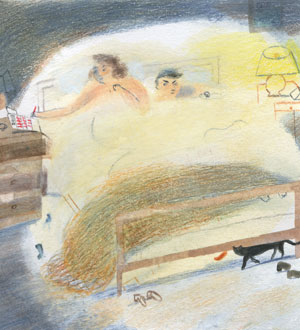The Shrink & The Sage: Should we quantify ourselves?
Roula Khalaf, Editor of the FT, selects her favourite stories in this weekly newsletter.
The Shrink

Not long ago my gym persuaded me it would be a good idea to monitor my exercise activity using an app, so I spent the next few weeks logging my every step – well, almost. Among other things, I discovered a new competitiveness, to the point of feeling disappointment if I dropped below 800 points, whatever that score meant. So I stopped.
I hadn’t realised at the time that I was part of a much-discussed trend of measuring all kinds of aspects of our lives. But the debate over the merits of the “quantified self” is often framed in simple good or bad terms. And some of the objections, such as the warning that by farming out our self-monitoring we may become unable to work out our own feelings, seem far-fetched.
There is clearly much to be gained from self-monitoring. Take drinking, for instance. If you’re concerned about your alcohol intake, it’s very easy to convince yourself you’re not consuming too much, really. That’s where the drink diary comes in. An invaluable tool – if used, and used correctly. There, in black and white in front of you, you’re confronted with the scale of the problem. No more delusions.
The same applies to exercise and all sorts of other things. Wishful thinking might suggest we’re doing enough; a diary might reveal otherwise. Given how prone we all are to self-deception, it’s helpful to compare our perceptions with reality. And detecting behaviour patterns can help us to make targeted changes. Smartphones and gadgets are just a more versatile tool than pen and paper.
As I found with my gym app, however, it can all become excessive: an end in itself rather than a means to an end. Meeting certain arbitrary goals can turn into a stress-inducing imperative. Before you know it, you’re obsessively logging food and drink, sleep, moods, lovemaking … When you get to monitoring your own self-monitoring, you know you’ve gone too far. Before you get to that point, remind yourself that this is a mere tool to help you reach your goals. Don’t let it run the show.
…
The Sage
I don’t often find myself agreeing with a former Archbishop of Canterbury, but when I heard Rowan Williams talk about people who came to him for job interviews armed with their Myers-Briggs profiles, I could not resist a resounding “amen”.
“Here is someone who comes across to me or to others as deeply lacking in self-awareness, low emotional intelligence,” he said, “and yet they can produce a set of facts about themselves, they believe, which will tell me who they are, and why I should give them a job. That’s always puzzled me.”
Williams was putting the quantified-self movement in its proper context, as just the latest in a long line of attempts to measure and categorise personal qualities objectively. He could see that the people who are most willing to believe that such tests and data reveal who they are are the people who know themselves least. But why should this be so?
The reason is that we cannot be reduced to a set of discrete psychological ingredients that can be weighed and measured. Even the most robust personality type descriptors – such as introvert and extrovert – are too simplistic because how we are with others depends very much on who those others are and what the situation is. As soon as we label ourselves as one or the other, we lose sight of this and become caricatures of ourselves.
Quantifying the self presents the same risks. To quantify, you need to choose specific, narrow measures, and that by necessity means somewhat artificially separating aspects of the self.
It’s very tempting to believe that objective data must provide a more truthful account of who we are than vaguer, more subjective judgments. And it would certainly be a delusion to think we have ineffable essences that cannot be in any way illuminated by the application of rigorous, objective, scientific methods. True self-knowledge, however, demands neither complete trust of our introspective judgments nor deference to the calculations of the spreadsheet, but a combination of the insights of both.
The Shrink & The Sage live together in southwest England. To suggest a question, email shrink&sage@ft.com
Comments